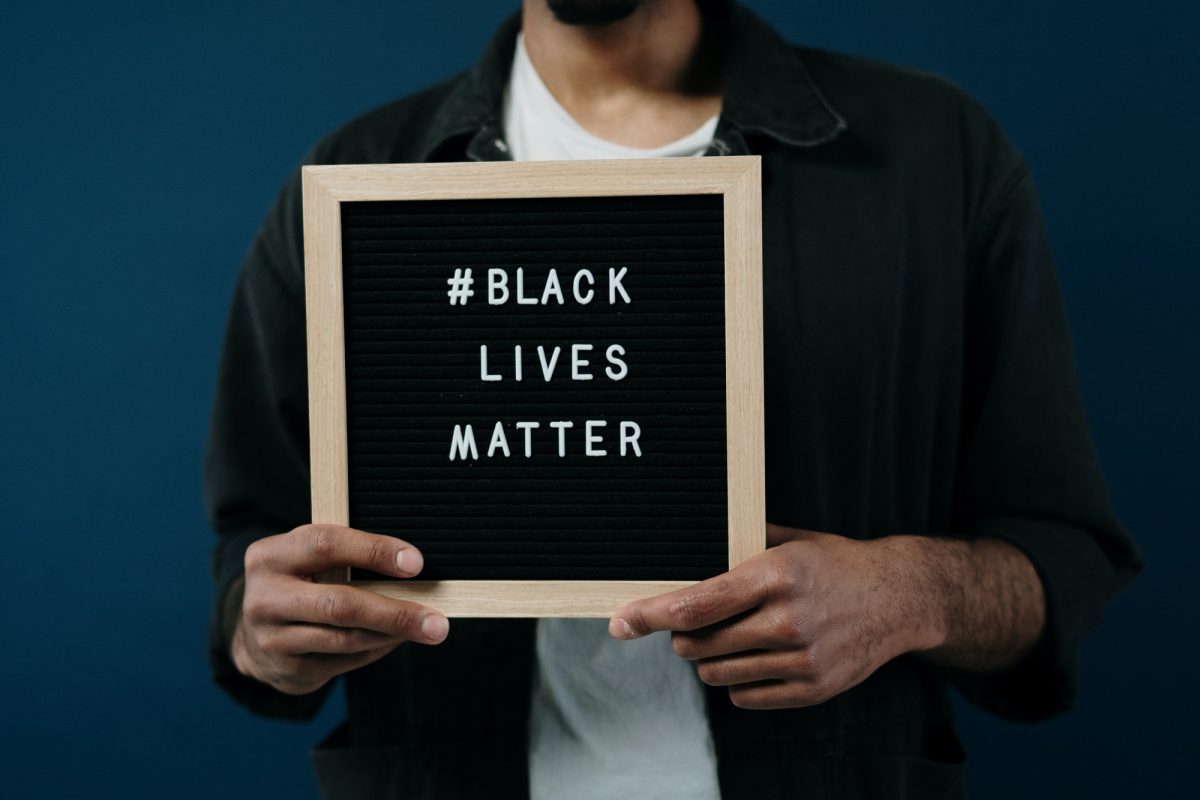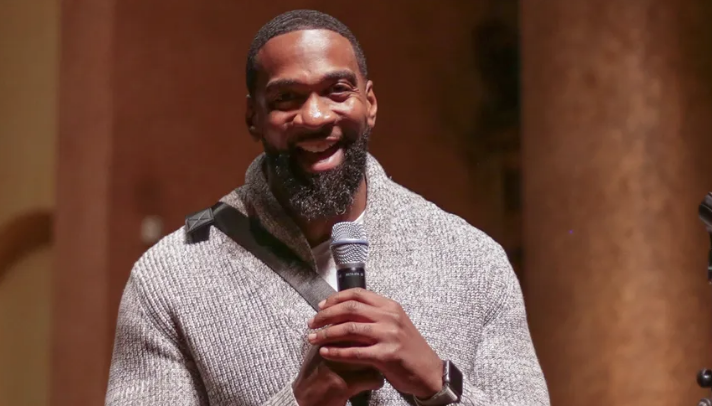
Photo by cottonbro studio via Pexels.
‘It’s not just a moment’
Black History Month event: The mental health effects of anti-Black racism
Warren Clarke tells a story about a moment in early childhood when he excitedly expressed that he wanted to become a bus driver.
His dad, who’d come to visit, got visibly upset. It made a strong impression on Clarke as a young boy.
As much as he didn’t understand at the time, he says he’s thought through this moment in light of his current position as a professor, and with the knowledge he now has.
The assistant professor of anthropology at UM identifies as a Black man and is also the founder of the Afro-Caribbean Mentorship Program and the upcoming community series Barbershop Talk Series: Black Men & Misconceptions.
“I’ll never forget,” says Clarke. “He said, ‘No. You’re going to be a lawyer or a doctor,’ right.
“It was [my father’s] way of dealing with anti-Black racism — in terms of ‘I don’t want to see my son be a bus driver. I want my son to be better because I know what the world is about’.”
Clarke notes that it’s an example of the ongoing and intergenerational impact of racism on someone’s internal world and self-worth — and on their mental health.
It’s not that deep, some people would say — but even microaggressions stick to the mind and internally question the Black person about their humanness.
“Mental health is not a moment, it’s a continuous thing that happens to an individual,” he says. “But when it comes to Black folk, it’s something that we have to deal with in many different ways.
“It impacts people’s ability to be human and impacts people’s ability to be — in a Canadian context — part of the fabric of Canada, to be a citizen. You know, when we think through anti-Black racism, it’s not a moment where you know you experience it and you get ‘over’ it.
“This is something that continues to impact the way you socialize, the way you work, even the way you interact with your children.”
Attend the 3rd annual Black History Month panel on Feb. 7, 2025 to learn more about the effects of anti-Black racism on mental health.
Clarke says his mother used to tell him, “Warren, you have to work harder than the rest” — a common refrain for young Black people from their guardians or parents.
But, he points out, not only are you having to work harder at your studies or other endeavours, “you also have to work hard at trying to assert yourself and believe that you’re human because anti-Black racism is stripping the humanness of a person, indirectly or directly.
“Even those microaggressions or slight moments of anti-Black racism — it’s not that deep, some people would say — [but] it’s something that sticks to the mind and questions the Black person about their humanness.”
ANTI-BLACK RACISM: MULTIFOLD, CONTINUAL EFFECTS
If Warren Clarke has a heart and a passion for his topic, there are a few reasons for that. It’s not only his lived experience and being a father, but also because of the many young Black men he’s spoken with and got to know while doing his research and community work.
His work and research has focussed on young and marginalized men who are Afro-Caribbean Black — ACB as the acronym— and their utilization in youth employment training programs in Ontario and Quebec. He found that their employment-seeking strategies are met with many barriers.
Too often, it means not only denial of certain opportunities, but a sort of denial of humanness.
It’s not only being Black and the accompanying biases, he notes, but additionally that they are met with gender biases about what it means to be a young man, mixed with social class or low social economic status.
Too often, he says, it means not only denial of certain opportunities, but a sort of denial of their humanness.
“And the only employment opportunities that these young men were receiving was labor-intensive work such as working in factories or only being perceived to be [suitable for short-term employment].”
So, he says, they were getting at times a doubled denial — from both potential and actual employers and their youth employment counsellors who were, in effect, categorizing them in this way.
Clarke saw, first-hand, the multifold, continual effects of racism, and the additional obstacles created by how relentlessly demoralizing and exhausting it is.
He says, “What I found when I was speaking with these young men, is that there was a constant struggle … to try to be a citizen, but also try to, you know, climb out of the marginalization … so they can assert themselves economically and equally.
“So this was something they were dealing with constantly. And because they were dealing with this constantly, they were questioning themselves about their work. They were questioning themselves. Should I even continue working? Should I just stop?”
For some of them, he says, it led to homelessness.
“One, they couldn’t sustain themselves in and through employment, but also they couldn’t find ways to challenge the anti-Black and gender biases and classism that they’re facing,” he explains.
“I have privilege in comparison to the young Black men who I was speaking with during my research,” he says.
But then, he says, “it doesn’t take away that I deal with anti-Black racism in other ways, right — and also to sustain my ability — you know, in the in the career that I’m in, or even as a father that I am. It still has impacts.
“It’s a hinderance in the ways in which we have to think, or take more time to think, on how to operate within our society.”
ALL PEOPLE ON DECK

Anthropology professor Warren Clarke.
Clarke also believes that we all need to be mindful that people deal with different types of social oppressions, and based on different characteristics of who they are.
“If we’re going to live in a way to move forward, we not only have to, you know, take space,” he says, “but we have to make space.”
For him, “we’re human beings first. That’s what it is. We’re human beings first and everything else comes after, you know.”
Clarke says that he will always champion the work against racism, but his work stems further, and beyond only anti-Black racism.
“I look at social oppressions holistically,” he says, “and I look at and try to understand people from different lived experiences so we can liberate people.
“To challenge anything, it’s not just one set of people, we need all people on deck — everyone, and we need to learn from everyone.”






